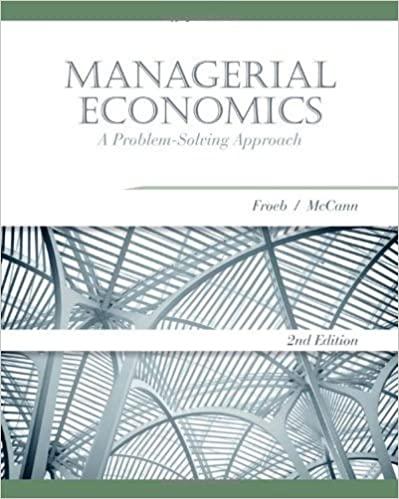Question
1) In 1991, Japanese workers' average tenure with a firm was 10.9 years; in 1991 in the United States, the average tenure of workers was
1) In 1991, Japanese workers' average tenure with a firm was 10.9 years; in 1991 in the United States, the average tenure of workers was 6.7 years.
- What are the two possible explanations for these differences?
- Which system is better?
- In the mid-1990s, Japan experienced a recession while the U.S. economy grew. What effect did this likely have on these ratios?
2) If society's goal is to make people happier, and higher GDP isn't closely associated with being happier, why do economists even talk about GDP? In the early 2000s, some people, part of a renewed "Simplicity Movement," felt that accumulating material things reduced their happiness. Assuming they are truly happier with fewer material goods, what does this suggest about the connection between GDP and welfare?
Step by Step Solution
There are 3 Steps involved in it
Step: 1

Get Instant Access to Expert-Tailored Solutions
See step-by-step solutions with expert insights and AI powered tools for academic success
Step: 2

Step: 3

Ace Your Homework with AI
Get the answers you need in no time with our AI-driven, step-by-step assistance
Get Started


